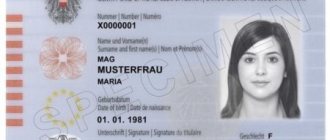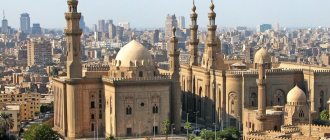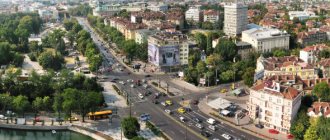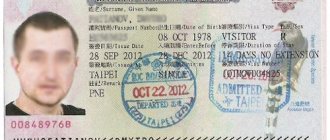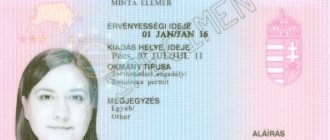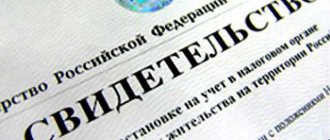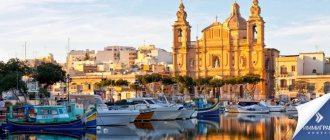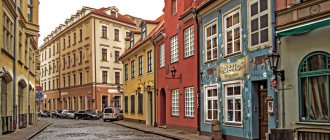How to get a residence permit in Bulgaria in 2021? Documents, reasons, cost and much more in this article.
Obtaining a D visa is a prerequisite for further steps to obtain a residence permit. This document is a permit for a foreigner to reside in the territory of the Republic of Bulgaria for one year. You can enter and leave the country as many times as you need.
It is very important to understand that even if you were in Bulgaria for only a week, you will be able to apply for an extension of your Residence Permit and it will be extended, but this year will not be counted when applying for Permanent Residence. A Residence Permit is obtained only on the territory of Bulgaria, in contrast to visa D, which must be obtained only in the country of your usual residence.
What does a residence permit in Bulgaria provide?
The holder of a residence permit status has the following opportunities:
- stay in the country for a longer period of time, leave the country and re-enter an unlimited number of times;
- children attend free schools or kindergartens;
- receive higher education at Bulgarian universities;
- engage in business activities;
- buy a car in your own name or real estate;
- enter into agreements with Internet operators on more favorable terms;
- issue invitations to Bulgaria for foreign citizens;
- obtain visas to Schengen countries;
- citizens who have a residence permit status for 5 years and stay on the territory of Bulgaria for a period specified by law can obtain citizenship;
- Loans are issued to foreign citizens much less frequently than to citizens with residence permit status.
Possible ways to obtain a residence permit
Each country has its own conditions for obtaining a residence permit. How to obtain a residence permit in Bulgaria? The most common method (typical not only for this, but also for most states) is for a foreigner to invest his own funds in the economy of the state. You can invest in securities, business structures, government funds, as well as real estate. The size of investments varies greatly from country to country and depends on the economic stability of the country. It is believed that the more stable the state, the more expensive a residence permit will cost a foreigner. Obtaining a residence permit through the purchase of a home is the most common.
Who can count on obtaining a residence permit in Bulgaria
Citizens who fall into one of the categories can obtain a residence permit: students, foreign specialists, investors, pensioners, property owners in Bulgaria, employed citizens.
There are several ways to obtain a residence permit in Bulgaria legally:
- Getting an education. Foreign citizens can study at universities in Bulgaria only on a paid basis. If Russian students want to stay for permanent residence in the country, then each academic year will be counted as a 6-month stay in Bulgaria. Along with the required package of documents, you must have the following additional documents: a certificate of student enrollment, a receipt for payment of the full cost of training, documents confirming the availability of housing and financial means to live in the country.
- Investments. Over the past 5 years, obtaining a residence permit based on a returnable investment has become popular. The total investment amount must exceed 1 million leva.
- Treatment. Citizens who need treatment and have supporting documents can stay in the country for a long time. You can stay in the country for no more than a year, and it is also prohibited to engage in entrepreneurial activities and work for hire.
- Immigration of pensioners.
- Work in Bulgaria. This method is quite complicated because several prerequisites must be met. Firstly, the applicant must be highly qualified and necessary for Bulgaria. Secondly, the employer must pay the foreign citizen a very high salary.
- Businessmen. You can obtain a residence permit in Bulgaria by registering a new business in the country or a representative office of an enterprise registered in Russia.
Visa regime in Bulgaria
Bulgaria is a member of the European Union, but is still in line to join the Schengen zone. That is, a Bulgarian visa does not give the right to enter and stay in the Schengen area. To travel to the country, citizens of Russia, Belarus, Kazakhstan and other countries need to apply for a Bulgarian national visa.
However, entry into the country with a double or multiple Schengen visa category C or D is permitted. You can also enter Bulgaria with a multiple-entry visa from Romania, Croatia and Cyprus.
Bulgaria has gained wide popularity, first of all, thanks to affordable prices for both holidays and housing. In addition, owners of Bulgarian real estate of any value have the right to receive a multiple visa for a period of one year or more.
Entry visa
Visas for stay in Bulgaria are of the following main types:
- "A": transit aviation visa;
- “C”: short-term stay visa (tourist, private visit, business, property owners, owners: long-term stay visa (immigration for obtaining a residence permit).
Visa C can be single, double or multiple (multiple) with the right to stay in Bulgaria for 90 days within six months. Up-to-date information on the rules for its registration can be found on the websites of the Bulgarian consulates.
- Consulates of Bulgaria in Russia
- Consulate of Bulgaria in Belarus
- Embassy of Bulgaria in Kazakhstan
All documents required for a visa application obtained outside of Bulgaria must be legalized. That is, translated and certified by accredited specialists.
The processing time for a visa to Bulgaria is 3-4 days. The consular fee is €35. An accelerated procedure (2 working days) will cost twice as much - €70.
Visa for property owners
Owners of real estate in Bulgaria have the right to obtain a multiple visa for a period of one year or more, with a permitted period of stay in Bulgaria of 180 days per year.
Spouses and direct heirs under the age of 18 are also entitled to a multiple visa. It is necessary to provide documents confirming relationship.
Outsiders can also obtain a visa on the basis of a notarial deed - only the visa will be single-entry. This requires a notarized residence permit for the required period (original and copy).
Long-term visa
A long-term visa type “D” is needed if you plan to spend more than 90 days in a six-month period in Bulgaria. To apply for a long-term visa, you need more compelling reasons than just the desire to live in Bulgaria: study, work, family reunification, doing business, long-term treatment, and so on.
Visa “D” gives the right to obtain permission for an extended, long-term or permanent stay in Bulgaria. After arriving in the country 14 days before the expiration of the visa, you must contact the Migration Service of the Ministry of Internal Affairs of the Republic of Bulgaria with an application to obtain the appropriate residence permit.
Documents for a long-term visa must be submitted in person and no earlier than three months before the initial date of the planned receipt of permission for a certain type of stay in Bulgaria. To do this, you can contact the consular service at the Bulgarian Embassy in your country of permanent residence or citizenship. All documents, except those prepared in Bulgaria, must be translated and legalized. This can be done at a translation agency in Bulgaria or from accredited translators at the Embassy and consulates of Bulgaria.
Important! From January 1, 2021, applicants who provide a rental agreement must submit a declaration from the owner of the property, in accordance with § 1, vol. 20, subt. 2 of the Additional Order of the Law on Foreign Citizens (FARL). The declaration is drawn up by a Bulgarian notary.
- For a complete list of documents for all types of visas and sample application forms, see here.
Obtaining a residence permit in Bulgaria for pensioners
Citizens of retirement age who have sufficient funds can move to Bulgaria.
To do this, you need to collect a complete package of documents, which includes:
- application for a residence permit completed according to the form of the Migration Service;
- a document confirming legal presence in the country;
- a receipt for payment of tax in the amount of 10 leva;
- rental agreement for housing and/or availability of real estate in Bulgaria;
- a receipt confirming the availability of funds in an account in a Bulgarian bank;
- health insurance;
- documents from the pension fund, certified by a notary;
- pensioner's ID.
Immigration is only possible for citizens whose taxes are equal to the pension paid in Bulgaria.
Important! Citizens with residence permit status are not full citizens of Bulgaria. To become a citizen, you must obtain citizenship, but to obtain Bulgarian citizenship you must renounce Russian citizenship, which in turn entails the termination of pension payments, because Only citizens can receive pensions.
The procedure for obtaining residence permit, permanent residence and Bulgarian citizenship
A Bulgarian residence permit can be granted to foreigners who intend to settle in the country or stay on its territory for more than 90 days within six months and have legal grounds for this.
Before applying for a residence permit, you must obtain a D visa so that you can enter the country. Documents for a visa are submitted to the Bulgarian Embassy in your country, and for a residence permit - in Bulgaria. To do this, after receiving a “D” visa, you need to come to the country for at least three weeks. All documents are submitted in person.
How to renew a residence permit
The residence permit status in Bulgaria is renewed annually. To obtain and renew a residence permit, foreign citizens must be provided with housing (rent or own), have health insurance and sufficient funds for living (at the rate of €2,000 per person per month).
To obtain permanent residence, after obtaining a residence permit and its annual renewal, you must stay in Bulgaria for at least 30 months within five years. That is, you can also leave the country during this period for no more than 30 months. If these conditions are met, you can submit an application to the migration service for a permanent residence permit in Bulgaria.
In some cases, obtaining a permanent residence permit (PR) is possible immediately, bypassing the stage of a residence permit. To do this, you must have proven Bulgarian origin.
A person with permanent residence status has all the same social benefits and guarantees as a citizen, except for the opportunity to elect or be elected to government bodies, serve in the army or police. You can also apply for permanent residence after marriage to a Bulgarian citizen.
5 years after receiving permits for permanent residence in Bulgaria, you can apply for Bulgarian citizenship, but subject to the following conditions:
- have reached the age of majority;
- you have not been convicted of a premeditated crime of a general nature by a Bulgarian court, and no criminal case has been brought against you for violating the law;
- have a permanent income or are engaged in a business that allows you to reside in the Republic of Bulgaria;
- speak Bulgarian; freed from their previous citizenship.
Permanent residence for investment
Bulgarian permanent residence can also be obtained in exchange for an investment of 1 million levs (about €512,000) in government bonds for a period of 5 years. After five years, the investor has the right to apply for citizenship. Or, citizenship can be obtained in an accelerated manner - after a year with permanent residence status, investing about another €512,000.
The cost of obtaining a residence permit
Consular fees for citizens of the Russian Federation:
Depending on the grounds for obtaining a residence permit
- Type “D” visa on the basis of Article 15, paragraph 1 of the Czech Republic (long-term stay visa valid for up to 6 months and with the right to stay for up to 180 days is issued to a foreigner who wishes to obtain long-term or permanent residence in Bulgaria) – €100
- Type “D” visa on the basis of Article 15, paragraph 2 of the Law of the Russian Federation (Long-term stay visa valid for up to one year and the right to stay for up to 360 days can be issued to foreigners who conduct scientific research or students with a study program of up to one year, or specialists or trainees, foreigners seconded by a foreign employer to perform specific tasks related to the control and coordination of the implementation of a tourism service contract, as well as foreigners seconded by a foreign employer to carry out and maintain investments certified in accordance with the procedure in accordance with the Investment Promotion Law) – €200
There are many law firms on the market that offer assistance in obtaining long-term visas and residence permits. The cost of services, including company registration, starts from €1000. But the decision to issue a residence permit is made exclusively by the government authorities of Bulgaria. None of the companies can guarantee a 100% positive result. Specialists can help you collect a complete package of documents, arrange everything correctly, help you register a company, and so on.
Reasons for refusal to issue and extend a residence permit
Incorrect execution of documents or their incomplete package will always be a reason for refusal. Forgery of documents and provision of knowingly false information will also be grounds for refusal.
When considering applications, the existence of grounds for granting a residence permit and the absence of reasons for refusal are taken into account. For example, violation of the laws of Bulgaria or any other EU country, as well as refusal of a residence permit from any other country, may become a reason not to issue a residence permit to Bulgaria.
How to obtain a residence permit in Bulgaria for a Russian citizen
In order to obtain a Bulgarian residence permit, Russian citizens need to go through several stages:
- clearly define the grounds for obtaining a residence permit, as well as familiarize yourself with the features of this procedure;
- open a visa type “D”, and also use it to cross the border of Bulgaria;
- contact the migration service with all documents;
- obtain a residence permit in Bulgaria.
Depending on the basis of the applicant, there may be certain changes, so it is worth familiarizing yourself in advance with all the features of obtaining a residence permit in the country.
Required papers
Bulgarian government authorities regulate the list of mandatory documents for obtaining a residence permit. You can view the current list for submitting documents on the official government website, because additional ones may be required depending on the specific case. All documents that were issued in Russia must be notarized, and a licensed specialist must translate.
The official list of documents for obtaining a residence permit in Bulgaria includes:
- application (the form can be found on the website www.mvr.bg/migration);
- a copy of the travel document with the stamp of the last visit to the country;
- lease or ownership agreement for real estate;
- bank account statement for an amount of at least 2,000 euros;
- certificate of good conduct;
- health insurance;
- a receipt for payment of a fee of 10 levs.
Each basis for a residence permit in Bulgaria requires the provision of additional documents. For example, Russians of retirement age must present a certificate of pension issued for the last 3 months. You also need to have a pension certificate and a pension book.
Where are documents accepted?
After all the documents have been collected, you need to contact the Bulgarian Migration Service, where they consider applications on an individual basis. You can only submit documents in person!
Cost and processing time
The cost of a residence permit in Bulgaria depends on its validity period.
- validity period up to 6 months – 200 levs;
- validity period up to 12 months – 500 levs.
You can also use the services of lawyers who offer assistance in obtaining visas and residence permits. The cost of legal services starts from 1,000 euros. It is worth paying attention to the fact that no law firm can definitely guarantee a positive result, because the decision is made by the government bodies of Bulgaria. Lawyers help collect and prepare all documents, as well as register a company or help with other issues.
The processing time for documents for obtaining a residence permit in Bulgaria ranges from two to three weeks, in rare cases – a month.
Stages of moving to Bulgaria
There are the following steps for those who want to go to live in Bulgaria.
Obtaining a D visa
Regardless of the type of permit, a person must have a D visa. It is issued directly in the country from which departure to Bulgaria is planned. To receive it, you must submit the following documents to the Bulgarian Embassy:
- Certificate of good conduct.
- Documents confirming the availability of finances.
- Medical insurance, the validity of which must be at least 180 days from the date of entry into the territory of Bulgaria.
- Documentation confirming the availability of real estate (own or rented).
- Application form for receiving.
- Passport details.
- Several photos for documents.
The visa is issued within two months. It is issued for a period of 180 days.
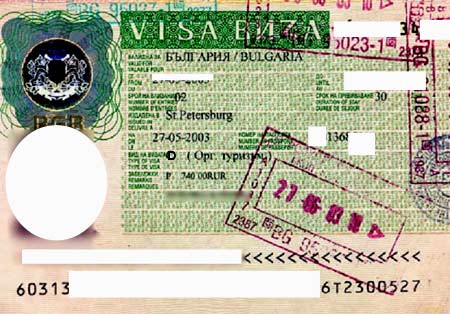
Example of Bulgarian visa category D
This period is given to a person to complete all the necessary documentation for a permit while already in the country. Applying for a D visa to Bulgaria will cost a person approximately 100 euros.
Obtaining a residence permit
To obtain a permit allowing long-term residence in Bulgaria, a foreign resident is required to provide himself with housing in this country . This is one of the main requirements.
Also, a foreign national must not have a criminal record in his home country. To obtain this permit, a foreigner will need to take out a medical insurance policy for the entire period of stay in the republic (maximum period - 12 months).
To receive it you need to submit the following documents:
- Immigrant visa D.
- Reason for obtaining the document.
Also, to obtain a long-term residence permit, a foreigner will need to provide a standard package of papers, including:
- Statement.
- International passport. The document must be valid for the first 1.5 years from the date of submission of papers.
- Photograph. Size 35 by 45 millimeters. The photo must comply with Schengen standards:
- The photo must be in color.
- No hats or glasses. The exception applies only to those individuals who, for medical reasons or religion, cannot be photographed without these attributes.
- The face should occupy 70 to 80% of the total area of the photo.
- The photo must be taken without corners.
- Light background.
- No pixelation.
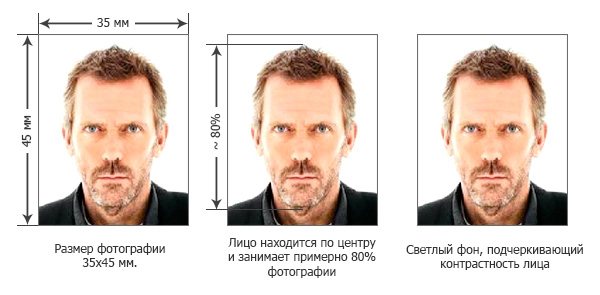
- A document confirming the presence of a place of residence in Bulgaria. This document can be a rental agreement or documents confirming the ownership of real estate in this country.
- An extract from a banking institution confirming the availability of a sufficient amount of money to live in the Bulgarian Republic. Today, to obtain a permit, a foreign resident must have in his account an amount of at least 12 minimum wages in Bulgaria. In 2016, this figure was 215.38 euros. Accordingly, the applicant should not have less than 2,585 euros in his account.
- Medical policy. It is worth considering that the amount of insurance coverage cannot be less than 30 thousand euros.
- Certificate confirming no criminal record.
- Receipt confirming payment of the fee (approximately 10 leva).
A package of documents is submitted to the country's migration service. The period for consideration and registration is 120 days. After its approval, a permit (personal card) is issued to stay in the country for a period of six to twelve months.
You do not have to wait a whole year to extend your permit.
If a foreign national has lived on the territory of the Bulgarian Republic for more than 6 months, he already has the right to apply for an extension of the document.
Obtaining a residence permit in Bulgaria:
Obtaining permanent residence permit and residence permit
Not all foreign nationals have the right to obtain a permanent residence permit in this republic.
The following can apply for permanent residence:
- Foreign residents who have relatives with Bulgarian citizenship.
- Children under 18 years of age whose parents are citizens of other countries. But the main condition for obtaining permanent residence is permanent residence within Bulgaria
- Foreign citizens who have lived in the Bulgarian Republic for more than 5 years, but have not left the country for more than 30 months.
- Residents of other countries who have made an investment in the state economy in the amount of at least 1 million leva.
- Foreign nationals who are married to a residence permit holder or a Bulgarian citizen. But it is worth considering that the marriage must be at least 5 years old.
- Foreign nationals who are parents of a citizen of the Bulgarian Republic. But parents can obtain permanent residence only if they are supported by a resident of this state.
- People with refugee status.
The main requirement for obtaining permanent residence is the presence of your own living space in this republic.
The procedure for submission and registration includes compliance with the following steps:
- Choice of base;
- Submitting documents for an immigrant visa;
- Legalization of a package of documents;
- Submitting documents to obtain a residence permit after entering the country. Implementation is given from 15 to 30 days. In some cases, the submission can be implemented later. But no later than two weeks before the visa expires;
- Obtaining a residence permit. Granted for one year;
- Residence in the country for more than 5 years according to the above document;
- Applying for a long stay;
- Residence in Bulgaria for five years;
- Only after this can you apply for permanent residence;
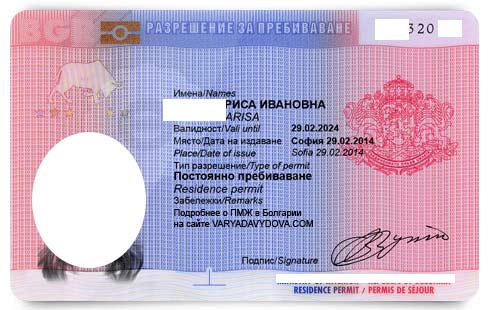
Sample Bulgarian permanent residence card
- In the future, it is possible to obtain Bulgarian citizenship.
All these stages can be bypassed if a person invests his own money in the development of the Bulgarian economy (the amount must be at least 125,000 euros). Another option is proof of origin (presence of close relatives) from Bulgaria.
Long-term residence permit
You can obtain a long-term residence permit only after 5 years of permanent residence in Bulgaria. But it is worth considering that only those people who, during 5 years of living in this republic, have not left the country for more than 6 months with a single exit can count on receiving this permit. A person has the maximum right to be absent from the country for 10 months. But this is the total time of absence from Bulgaria for the entire period of life in this country.
Requirements for obtaining a permit:
- A foreign national must be able to independently provide for himself and his family.
- Each family member of a foreign national must have insurance.
A long-term residence permit is issued for 5 years.
Residence permit for pensioners
It is this type of permit that is issued to Russians most often. This is explained by the fact that it is much more comfortable for our pensioners to live in Bulgaria on a Russian pension than on one in Russia. In addition, the Bulgarian climate is more suitable for sick people. The condition for obtaining a residence permit document is the presence of a D visa, a Russian pension certificate and own or rented housing.
It is worth noting that not only older people are considered pensioners here, but also those who receive a pension for disability or for caring for loved ones. However, what matters is the size of the pension, which is limited to 70 euros. Housing can be owned or rented, and the cost of rental housing is on average 2-3 times lower in Bulgaria than in Russia. Russian pensioners often live in Bulgaria on the funds they receive from renting out a Russian apartment. This money is enough for them to rent real estate in a foreign country, for medical services, travel and entertainment.
Residence permit by representation
In order to obtain a residence permit in this way, you must be an employee of a Russian company with a representative office in Bulgaria. Many businessmen from Russia today register their representative offices with the Bulgarian Chamber of Commerce and Industry. The cost of accreditation at such an institution is about 1 thousand euros. For Russians, this area is an entire business segment; in many cases, representative offices are registered specifically to sell accreditations to those wishing to have a residence permit in Bulgaria. It is not customary to talk about this method openly, although it is not a secret for the Bulgarian migration services.
Who is interested in Bulgarian citizenship
Surveys of homeowners in Bulgaria indicate that more than 30% of respondents expect to move to this country in the future, 20% of Bulgarian property owners expect to leave our country in the near future, and 10% buy housing there specifically for a residence permit. Such data indicate that our compatriots, when buying foreign housing, in most cases expect to leave the Russian Federation and obtain a residence permit in Bulgaria when purchasing real estate. Since 2014, this has been possible thanks to a corresponding decree of the government of this country.
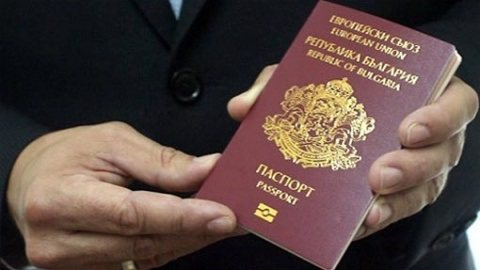
The motives of these people are different. A Russian emigrant is often a wealthy person, concerned about the future of his children in Russia, or dissatisfied with the social conditions of living there. Some blame the Russian economy as the culprit of emigration, others blame their dissatisfaction with the country's government, the education system, and the level of medicine. A minority testifies against the harsh Russian climate. Thus, a residence permit in Bulgaria when purchasing real estate is a way for Russians to escape an undesirable reality.
Grounds for refusal of a residence permit
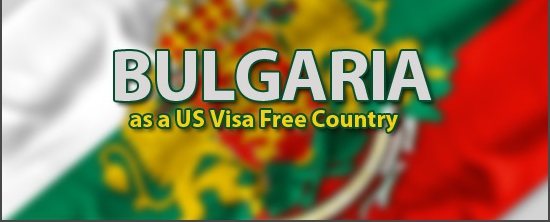
A residence permit in Bulgaria can be revoked if it turns out that the resident provided incorrect information or committed illegal actions in the country. In addition, a residence document may be refused if:
- if the resident was imprisoned for a period of three years or more;
- the foreigner used false documents;
- the guest has a disease due to which he poses a danger to other people;
- when a person has nothing to live on;
- if the resident has violated migration rules or customs regulations;
- if he entered into a fictitious marriage with a Bulgarian;
- committed a legal offense in relation to Bulgarian tax legislation.
